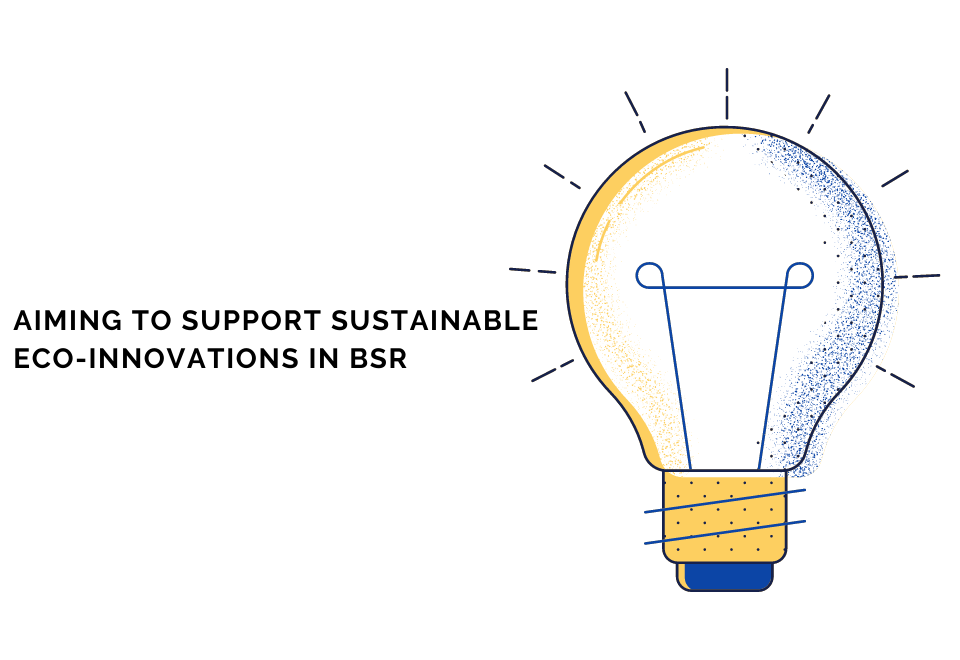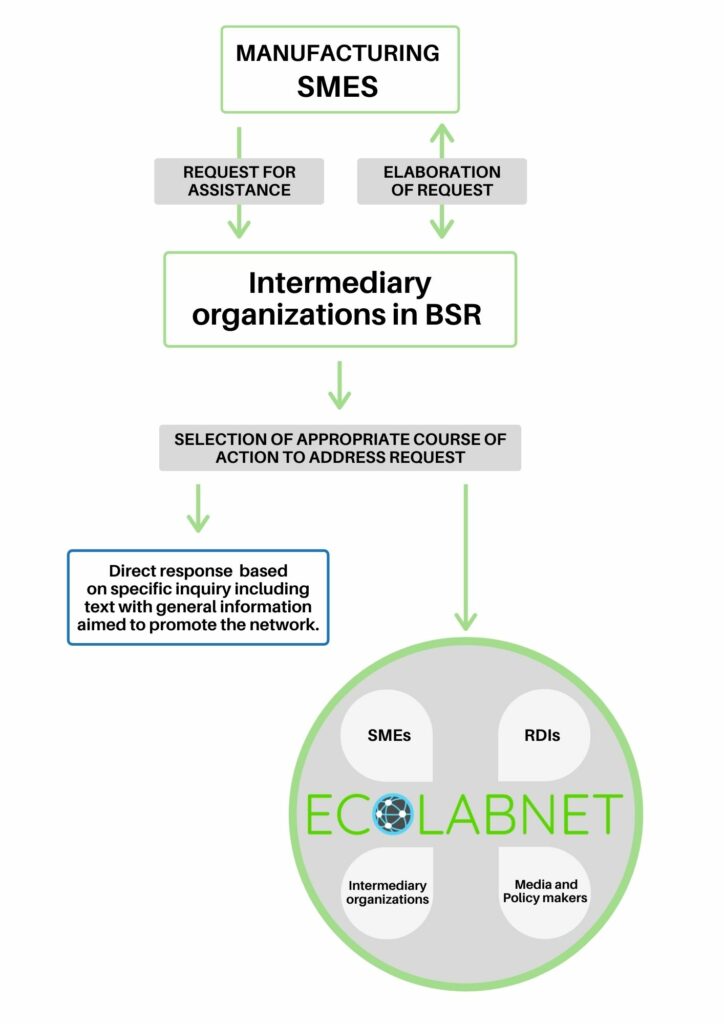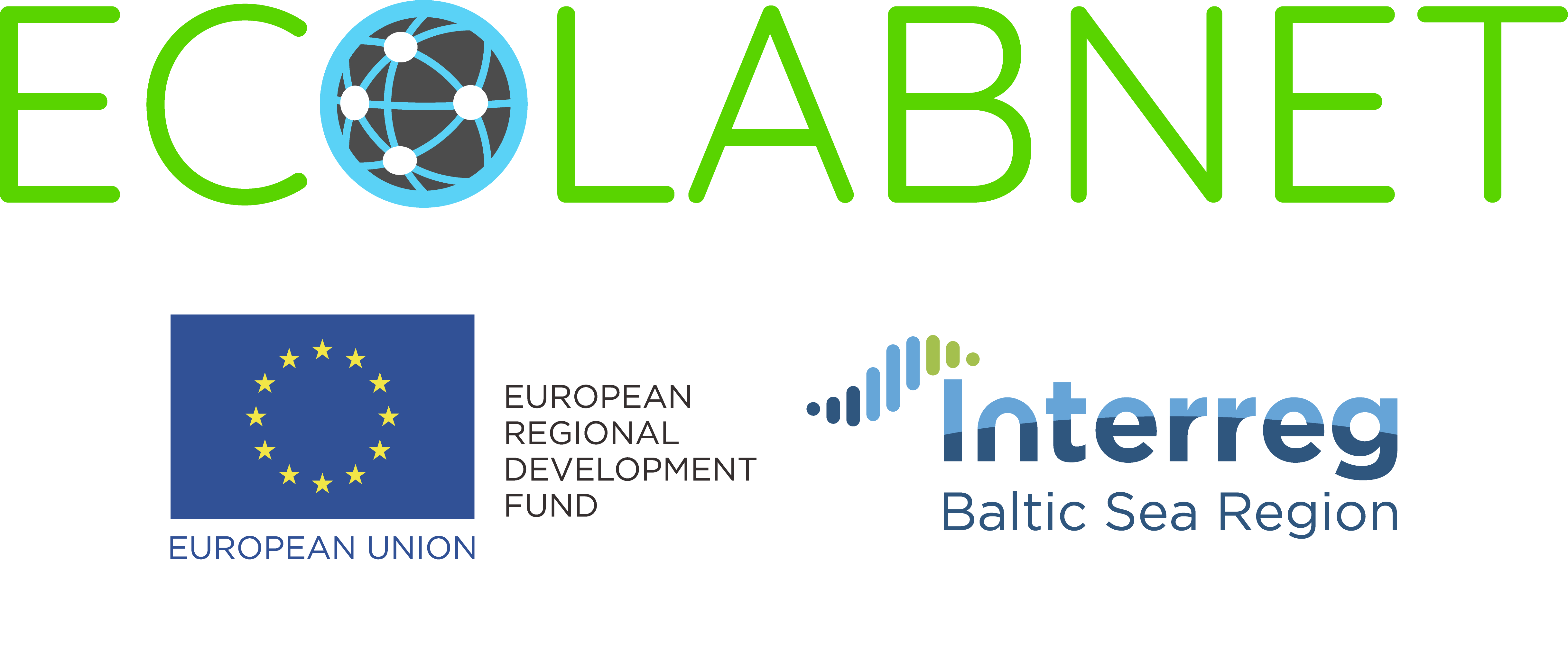
Writer: Deivydas Čepas
Eco-innovation has seen surge in relevancy during the past decade. Its emphasis on the sustainable use of materials, energy and human resources, eco-innovation is directly in line with the current societal agenda of circular economy and sustainability. Besides aiding environmental goals, eco-innovation boosts business performance and increases competitiveness by improving material, energy, and financial efficiency.
However, whether due to the lack of compence or resource scarcity, a great deal of SMEs are unable to effectively implement and realize the benefits of eco-innovation. For this reason, establishing cooperation networks with suppliers and academic institutions, and incorporating them into the supply chain are crucial steps towards the realization of said benefits.

ECOLABNET is project funded by the Interreg Baltic Sea Region, which seeks to integrate RDI know-how into SMEs of the Batlic Sea Region (BSR) to improve their competencies and facilitate eco-innovation efforts. In addition, the network aims for efficient use of human and technical resources, thereby improving the network‘s organizational structures.
To achieve these goals, ECOLABNET uses the product-service system (PSS) – a network of SMEs, customers, intermediate stakeholders, and suppliers (e.g. RDI institutions) that ensures satisfaction of customers‘ needs while simultaneoulsy reducing the environmental impact of manufacturing and consumption of products.
The ECOLABNET PSS aims to provide BSR SMEs with the ability to fully pursue eco-innovation in their business through international cooperation with both private and public actors offering high-quality expertise and facilities for bio-based research, manufacturing, eco-design, and sustainable business development models. Such a cooperation boosts the speed of eco-innovation processes, and promotes long-term commercially reciprocal relationships between RDIs and SMEs by commercializing the expertise of the former, and improving the competitiveness of the latter.
From a future value perspective, ECOLABNET seeks to use these relationships to institutionalize cooperation practices for future SMEs seeking to integrate eco-innovation into their business models.
ECOLABNET also seeks to:
- Establish an international network of multidisciplinary experts to develop eco-innovations and promote equal distribution of RDI infrastructure among the Baltic Sea Region countries to ensure the best possible results.
- Increase awareness about eco-innovations among SMEs and intermediary organizations in the Baltic Sea Region.
- Organize various events for SMEs, intermediaries and general public about eco-innovations in manufacturing sector.
- Develop distinct prototypes using 3D printing technologies to demonstrate the capabilities of the network.

All of the aforementioned goals are going to be reached through a transnational network of 11 organizations from 6 BSR countries, including:
- MUOVA Design Centre and VIA University College – providing PSS design and business management expertise.
- Vilnius University, Kaunas University of Technology, Tartu University, Czestochowa University of Technology, and Centria University of Applied Sciences – providing expertise and facilities for research and development of new bio-based materials.
- Labasmera MB and Estrotech Ltd – providing 3D and rapid prototyping services and production of custom design products.
- Lithuanian Business Confederation and Estrotech – facilitating the collaboration between SMEs.
- Sustainable Innovation Sweden – providing examples of existing networks’ structures and management.
The activities of these organizations will be implemented in a phased approach allowing the partners to efficiently develop and test different eco-innovations, and discuss technical and scientific needs.

In order to create a fruitful cooperation between current and potential ECOLABNET partners, three key components are necessary:
- Web platform for better communication – a tool for dissemination of information about the projects’ activities, upcoming events, network’s services, and possibilities to join the network.
- Digital collaboration tool – Digital Exchange platform for partners gain access to a plethora of information regarding manufacturing, RDI, marketing, and project management.
- Public events and thematic meetings – regional or national roundtable thematic meetings will be held as needed to discuss eco-innovation. The meetings will be aimed towards the promotion of projects and cooperation among the BSR countries.

Internal Cooperation Plan:
- SMEs and other interested organizations contact the ECOLABNET through the intermediary organizations
- If necessary, the intermediaries will stay in contact with the potential candidates to clarify and discuss ideas regarding cooperation with ECOLABNET
- Intermediary organizations and/or other ECOLABNET members determine the most appropriate course of action, including the response to the candidates. Potential candidates are forwarded to other ECOLABNET members or added to the digital collaboration tool.
- Other replies provide the candidate with all the needed support
- Candidates are processed by ECOLABNET members according to their individual needs and are provided with an opportunity to reach all the necessary eco-innovation support services they need.
- ECOLABNET maintains a close contact with media and relevant policy-makers of each partner country to promote the network services available to SMEs and commercialize all of the developed products.
- The process results in new partnerships and/or project proposals used to attract funding for eco-innovation projects.

